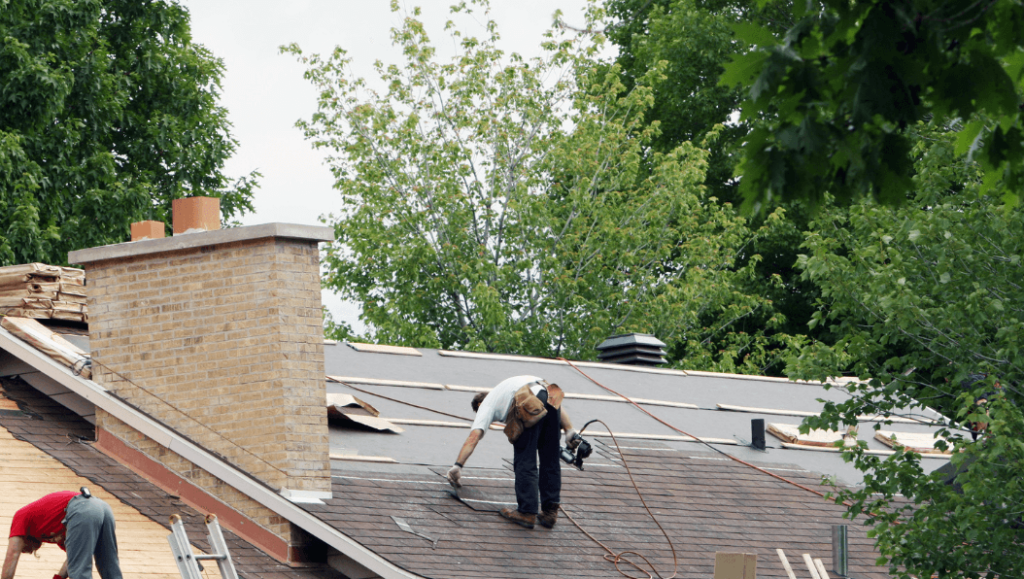
Illinois has strict licensing requirements for roofing contractors to ensure that only qualified professionals operate. Whether starting a roofing business in Illinois or expanding your company into the state, understanding the Illinois Roofing License Laws is essential to stay compliant and avoid costly fines.
This guide breaks down the Illinois roofing license requirements, the application process, costs, and how to maintain compliance.
1. Do You Need a Roofing License in Illinois?
Yes! Illinois Requires a Roofing License
Under the Illinois Roofing Industry Licensing Act, all roofing contractors must obtain a state-issued license to perform roofing work legally.
Who Needs a License?
- Residential roofing contractors
- Commercial roofing contractors
- Industrial roofing contractors
- Subcontractors who perform roofing work
Tip: Unlicensed contractors face fines of up to $5,000 per offense, and repeated violations can lead to criminal charges.
2. Types of Roofing Licenses in Illinois
Illinois offers three categories of roofing licenses:
- Limited License – This license covers only residential roofing projects, such as homes and small residential buildings.
- Unlimited License allows contractors to work on residential, commercial, and industrial roofing projects.
- Commercial/Industrial License – This license is only specific to commercial and industrial roofing projects and does not cover residential work.
Tip: If you want to work on all types of buildings, the Unlimited License is the best option.
3. Illinois Roofing License Requirements
To get a roofing license in Illinois, contractors must meet the following requirements:
- Business Registration – Register your company with the Illinois Secretary of State.
- Pass the Roofing Exam – Illinois requires contractors to pass a roofing trade exam based on their license type.
- Provide Proof of Insurance – You must carry general liability insurance with a minimum of $250,000 for a Limited License and $500,000 for an Unlimited License. Workers' compensation insurance is required if you have employees.
- Secure a Surety Bond – A $10,000 surety bond is required for licensing.
- Pay the Licensing Fees – Fees vary by license type and are due with your application.
Pro Tip: If expanding your business to Illinois, ensure your insurance and bonds meet the state’s minimum requirements.
4. How to Apply for a Roofing License in Illinois
Step 1: Choose Your License Type
Decide whether you need a Limited, Unlimited, or Commercial/Industrial license based on the type of work you plan.
Step 2: Submit Your Application
Download the roofing license application from the Illinois Department of Financial & Professional Regulation (IDFPR) website.
Step 3: Provide Required Documentation
Your application must include:
- A completed application form
- Proof of business registration
- A certificate of insurance and workers' compensation coverage
- A $10,000 surety bond
- Exam pass certificate (if applicable)
Step 4: Pay the License Fee
- Limited License: $125
- Unlimited License: $375
- Commercial/Industrial License: $375
Tip: Keep copies of all documents in case of audits or license renewals.
5. Illinois Roofing License Exam: What to Expect
What’s on the Exam?
The Illinois Roofing License exam tests knowledge of:
- Roofing materials and installation techniques
- Illinois roofing codes and building regulations
- Safety practices (OSHA compliance)
- Business and contract law
How to Prepare for the Exam
- Review the Illinois Roofing License Exam Study Guide, which is available online.
- Take practice tests to familiarize yourself with the format.
- Study OSHA roofing safety rules to avoid missing key questions.
- Consider an exam prep course for better results.
Tip: If taking the Unlimited License exam, expect more detailed questions on commercial roofing systems.
6. How to Stay Compliant & Renew Your Illinois Roofing License
License Renewal Requirements
- Illinois roofing licenses must be renewed every two years.
- Renewal fees are the same as the initial application fee.
- Contractors must maintain their insurance and surety bond to stay compliant.
Penalties for Non-Compliance
- Operating Without a License: $5,000 fine per violation
- Fraudulent Licensing Practices: Possible criminal charges
- Insurance Lapses: Immediate license suspension
Set renewal reminders in your business software (or use Pitch Gauge) to avoid missing deadlines.
7. Expanding Your Roofing Business in Illinois
If you’re an out-of-state roofing contractor looking to work in Illinois, follow these additional steps:
- Obtain a Foreign Business Registration – Register your company with the Illinois Secretary of State.
- Meet Illinois Licensing Requirements – Even if you’re licensed in another state, you still need an Illinois roofing license.
- Apply for Local Permits – Some cities, such as Chicago, require additional permits beyond state licensing.
Tip: If you already hold a license in another state, check if Illinois offers reciprocity to fast-track your licensing process.
Conclusion
In conclusion, getting a roofing license in Illinois is essential for legally operating in the state and avoiding hefty fines. By following the correct application process, preparing for the exam, and staying compliant with renewal requirements, you can successfully grow your roofing business in Illinois.